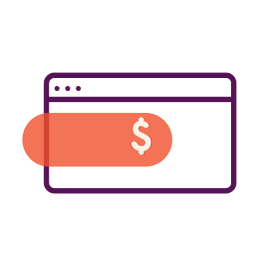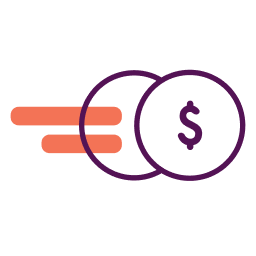Business financing comes in many forms, but for some small business owners, government small business loans offer the most benefits. These SBA loans are backed by the U.S. Small Business Administration (SBA) and issued by approved lenders like banks and credit unions.
These tend to be low-interest loans and have long repayment periods, which makes them ideal if you want to borrow millions of dollars for, as an example, purchasing real estate.
There are several SBA loan programs available to qualified business owners, each with its own rates, limits, and requirements. However, the three most common small business loan programs offered by the SBA are SBA 7(a) loans, 504 loans, and SBA Microloans.
Choosing the Right Government Loan for Your Business
We’ll look at each of these government loans, as well as some alternatives, so you have an understanding of your options. The one you choose should be based on what works best for your business. Consider your credit, how much you want to borrow, and how long you need to repay the loan.
SBA 7(a) Loan
The 7(a) loan program is the most popular loan program offered by the SBA, likely because of its flexibility. Eligible business owners can access up to $5 million to meet a variety of expenses, like purchasing inventory, equipment, or fixtures. An SBA 7(a) loan can also be used to refinance debt, manage seasonal expenses, purchase land, or fund new construction.
The 7(a) loan program also includes the SBA Express loans, which are available for amounts up to $350,000. These loans are very similar in terms of how funds can be used (e.g., working capital, equipment purchases, etc.), but they have a much faster turnaround time.
SBA Express loan applicants can expect a response within 36 hours of application completion, while traditional 7(a) loan applicants often need to wait weeks or months for their application to process.
If you are approved for a 7(a) loan, you can expect terms between 5 and 10 years, though funds meant for real estate projects can carry terms up to 25 years. SBA interest rates, which are based on the current prime rate, vary based on the loan term and total loan amount.
To control rates, the SBA does set maximum interest rate limits a financial institution, like a lender bank or credit union, may charge, which range from Prime + 2.25% to Prime + 4.75%. That means that based on the current prime rate (3.25%), lenders cannot charge more than 5.5% to 8.00%, depending on the term and size of the loan.
Only for-profit businesses that are located in and do business within the U.S. are eligible for 7(a) loans. In addition, eligibility requirements include a satisfactory FICO SBSS Score, a feasible business plan, and no access to alternative financial resources.
SBA 504 Loans (CDC loans)
While SBA 7(a) loan funds can be used for a variety of purposes, the 504 loan program, often referred to as the CDC loan program, was specifically designed to help business owners with real-estate financing needs, as well as to purchase “major fixed assets that promote business growth and job creation.” Funds, which are made available by SBA Certified Development Companies (CDCs), must be used to purchase, remodel, renovate, modernize, or construct a property.
If approved for this loan, you can expect funding amounts up to $5 million and a repayment term up to 25 years. Interest rates for 504 loans are notably low, with current rates hovering around 3.594%.
Another attractive benefit of the 504 loan program is the relatively low down payment of 10% (in most cases). Many other small business term loans require down payments between 25% and 30%.
SBA Microloans
An SBA Microloan is available to a wide range of businesses, including startups, sole proprietorships, and any other qualified business borrower, and are often a good option for minorities, women, and veterans. These loans offer funding up to $50,000, though the average microloan is about $13,000.
Funds for these programs are made available to borrowers through SBA-designated intermediary lenders. These lenders are typically non-profit, community-based organizations that have the financial and technical experience required to manage these partnerships.
If your loan request is approved for this type of loan, you can expect repayment terms of 6 years or less, with rates between 8% and 13%. Of course, as with any other SBA lending program, loan terms vary based on the loan amount, funding purpose, and the requirements of the lender.
SBA Microloan funds can be used as working capital or to cover the costs associated with a number of business activities, including purchasing equipment, machinery, inventory, and supplies. Unlike SBA 7(a) funds, Microloans cannot be used to refinance or pay existing debt, nor can they be used to purchase real estate.
Where to Find SBA Loans
The bank that you already have a business banking relationship with may offer SBA loans. There are also online lenders that offer them.
Alternatives to Government Business Loans
SBA loans are just one of the many financing options available to help you grow your business. And though an SBA loan may carry the lowest interest rates and fees, other loans may better suit your needs. This is particularly the case if you have bad credit, don’t meet the SBA size or industry requirements, or if your business is one of the many non-profit organizations seeking funding within the U.S.
If any of that sounds familiar, you may want to consider term-loans offered by banks, credit unions, and online lenders, each of which base eligibility on their own set of requirements. Further, alternative lending solutions like crowdfunding, venture capital investments, and angel investors may also represent reasonable paths toward the funding your business needs.
Here are a few alternative financing options to consider:
How to Qualify for a Government Business Loan
Qualifying for any of these loans offered by the SBA may be more difficult than qualifying for, say, a short-term loan. You may need a FICO SBSS credit score of 155 or higher. You may also need to be in business for at least two years.
The SBA doesn’t post specifics on how to qualify for its loans, and individual lenders can set their own requirements, so check with the lender to see if you can get more specifics before applying.
How to Apply for a Government Business Loan
Lenders also set their own application process. If you’re applying through a bank, you’ll likely need to visit a branch to complete your application. If you apply online, you won’t.
Research all requirements before applying so you have everything you need in place, which may include:
- Tax returns
- Financial statements (profit and loss)
- Business plan
Grants & Resources for Women, Veterans, and Minorities
Loans from the federal government aren’t your only source of financing for your business.
If you’re a small business owner who can identify as a woman, military member or minority, you may find that there are grant programs specifically created to help entrepreneurs like you manage the cost of business development. Here are a few to consider
Grants for Women
If you’re a woman running a business, there are grants available specifically for you!
Amber Grants
Launched by WomensNet in 1998, this $2,000 grant is awarded monthly in honor of Amber Wigdahl, with the goal of helping women pursue their entrepreneurial dreams. In addition to the monthly grant, WomensNet also awards a $25,000 Amber Grant once a year.
To be eligible for the $2,000 Amber Grant, you must be a female of eighteen years or older who operates a business within the United States or Canada. In addition, you must embody a number of qualities as specified by WomensNet, which include passion and a strong business vision. Only recipients of the monthly annual Amber Grants will be eligible for the $25,000 yearly grant, and decisions are based on an online vote.
Applications are accepted each month, and you can apply numerous times per year. To submit your application, visit the Amber Grants for Women website and complete a short, online form. There, you’ll be required to provide basic information about your business and what you would do with the grant money. All applicants must also pay a $15 fee upon the submission of their application.
Cartier Women’s Initiative Grant
Created in 2006, the Cartier Women’s Initiative was designed to support women entrepreneurs around the world as they solve contemporary global issues.
At the culmination of this competition-style award program, 21 finalists will receive one-to-one personalized business coaching, access to valuable workshops and networking sessions, media visibility, and a scholarship to the INSEAD Social Entrepreneurship Executive Education Programme. Seven of the top finalists will receive $100,000 in prize money, and 14 finalists will receive $30,000.
To be eligible for this award, you must be an “impact-driven” business that aims to have a positive and measurable environmental and/or social impact. In addition, your business must be in its first to fifth year of operation and aligned with one of the Sustainable Development Goals (SDGs) as set by the United Nations.
Cartier Women’s Initiative is accepting applications for the 2020 Edition award from now until August 14, 2019, at 2 p.m. (CEST). If you’re interested in this grant, you can apply online at the Cartier Women’s Initiative website.
Small Business Grants & Resources for Veterans
Veteran business owners also have grants available to them.
The StreetShares Veteran Small Business Award
The Veteran Small Business Award was created by StreetShares, a small business lending organization that works with veterans and their spouses. Each year, StreetShares offers three grants, with awards ranging from $4,000 to $15,000.
To be eligible for this award, you must be a veteran, reserve, or transitioning active duty member in the United States Armed forces. Gold Star families, or spouses, children, and immediate family of a Military member who died in active duty, are also eligible. Further, you must be 21 and own at least 51% of a business in the early stages of development.
If you’re considering this award, you’ll need to brush up on your video skills. All applicants are required to submit a pitch video. The video must highlight your personal story, your business idea, how your business will positively impact the military community, and how you intend to use the award money.
Warrior Rising
Warrior Rising provides a variety of resources and tools to help U.S. veterans and their immediate family start and grow businesses that perpetuate jobs for other U.S. military veterans.
To have access to potential grants, mentorship opportunities, workshops, training, and other programs made available through Warrior Rising, you’ll need to sign up as a “Vetrepreneur,” which you can do for free online.
After signing up, you can apply for either the Business Creation Process or the Business Acceleration process, both of which include six phases of growth, development, mentoring, and funding to those who are approved.
Funding options including initial grants, crowdfunding, investments, and loans. As such, amounts, eligibility, and deadlines vary from applicant to applicant.
VetFran
If you’re a veteran who is interested in opening a franchise business, then you may want to consider looking for a grant or financial assistance through the VetFran program. Through this program, you can work with numerous franchises, including The UPS Store, Grease Monkey International, Anytime Fitness, Liberty Tax 7-Eleven, and AAMCO.
Though VetFran programs vary based on the franchise you pursue, generally they offer veterans access to deeply discounted franchise free on-going training, and a variety of other special incentives.
Small Business Grants & Resources for Minorities
Minority Business Development Agency (MBDA)
The MBDA provides a wealth of information, resources, and tools to help minority business owners overcome the challenges they often face. Though they don’t fund specific grants, they often post information about available grants that may benefit minority business owners.
Grants Available to All Entrepreneurs
If you’re not a minority, woman, or veteran who owns a business, there are other grants you may qualify for.
National Association for Self Employed (NASE) Growth Grants Program
NASE is an organization that offers paid-members access to a variety of resources, tools, and benefits that can help them grow their business.
As part of this program, the NASE awards one Growth Grant per month, with prize amounts up to $4,000. Funds can be used many ways, including to hire and train employees, start new marketing campaigns, and invest in equipment.
To be eligible for the Growth Grant, you must be a micro-business owner and NASE member in good standings.
The application process is ongoing, and applications are reviewed quarterly. If, for example, you submit an application in July (Q3), it will be reviewed in October (Q4).
FedEx Small Business Grant
Each year, FedEx awards ten business owners grants and other prizes to help them manage the costs associated with growth and development.
Grant totals vary from year to year, but in 2019, FedEx awarded one $50,000 prize, one $30,000 prize, and eight $15,000 prizes. Each recipient also received between $1,000 and $7,500 in FedEx print and business services.
Only United States-based, for-profit businesses who have been in business for at least six months and have fewer than 99 employees are eligible for this grant.
Nav Small Business Grant
I’d be remiss if I didn’t mention Nav’s Small Business Grant, which is held quarterly. Businesses submit a video entry describing their business and what they plan to use the funds for. One $10,000 winner is selected, as well as a runner-up, who receives $5,000.
FAQs
We’ve covered a lot here, but if you still have questions, you may find the answers below.
This article was originally written on July 12, 2019 and updated on August 5, 2022.



We need a small business loan to purchase trucks for work in the mining industry. Our problem is getting funding during this trying times with covid-19.what procedure to we follow to apply for a loan? We have a registered company and are vat compliant.
Please reach out to Nav’s credit & lending team. They will be happy to try to help.
Good and very informative. Yes I will continue to follow your articles. Thanks for publishing..
Your yhe best
Thank you for the information